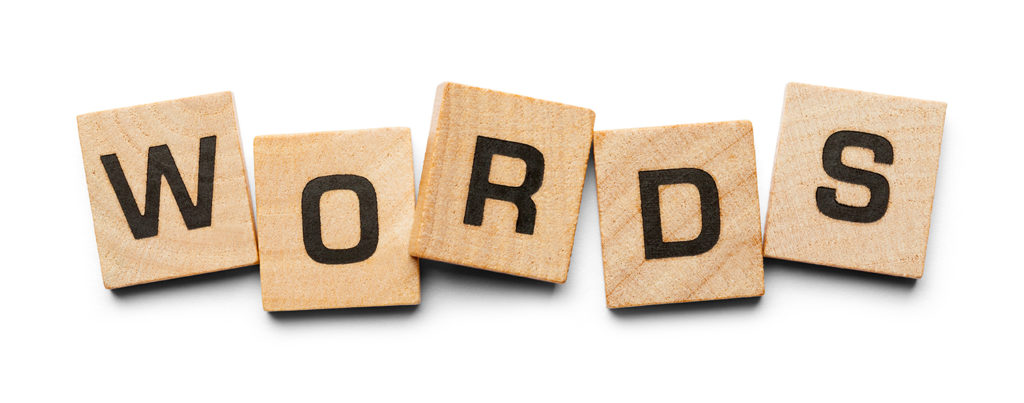Hot to Encourage People to Continue Donating

What should you say to get people to donate?

Your words matter when you're trying to get people to donate.
If you inspire people, you'll get a gift.
If you bore people or confuse them, you won't.
It's pretty simple.
This means you can't just slap any words on a page, send it to a donor, and expect great results.
Maybe you've experienced this with a fundraising letter that performed so poorly you called it a failure and didn't want to try it again.
Or a Facebook fundraiser that raised so little it was embarrassing.
Having the right message means that your emails, social media posts, and in-person requests must have some thought behind them.
They must be strategic to be effective.
It means you have to PLAN what you'll say and think about who you're saying it to, not just hurry through the task of writing so you can mark it off your "to do" list.
You need to slow down, think, and find the right words.
Your words must cut through the noise and land smack-dab in the middle of your reader's or listener's heart, inspiring them to give.
So, what ARE the right words?
How do you motivate people to take action so you'll get the results you're looking for?
Let's start by looking at the psychology of words.
Psychology of words
Words are important.
The right words are critical, especially when your goal is to motivate someone to take action (like supporting your cause!).
Your request for support should connect with the passion your donor or prospect already has for the work your nonprofit does.
It's not about convincing people that your mission matters or that your nonprofit is worthwhile.
It's about telling your story in an authentic way that fans the flames already burning in people's hearts.
Remember that giving is an emotional act. People make the decision to donate with their heart, then justify it with their head.
This is why stories are so important.
 Good fundraising stories are full of emotion and draw people in.
Good fundraising stories are full of emotion and draw people in.
They paint the picture of the problem, show the size and context, and show how your nonprofit is addressing that problem.
A good fundraising story gives hope, which triggers action.
When you ask for support in a way that's concise, full of emotion, and clearly shows the reader/listener how they can help, you're much more likely to get a donation.
Asking someone to give so you can reach your $10,000 goal just doesn't cut it.
For example…
| Ask for this | Not that |
|---|---|
| Help us care for a dog/cat for a day | Give to our annual fund |
| Provide lunch for an orphan for a year for just $38.40 | Help us reach our goal |
| Provide a homeless person with a hot meal and a warm bed tonight | Fund our budget |
Now that you understand, let's look at some specific words that are powerful in motivating people to take action.
5 powerful words that strengthen your Ask
There's been a lot of research done about particular words and how they impact action.
Gregory Ciotti wrote about the 5 most persuasive words in the English language and how "certain power words hold more sway over our decision making process than others."
It's true that certain words pull us more than others. Words can paint a picture, make us feel a variety of emotions, and spur us to form opinions.
In fundraising, words move people to feel compassion, sympathy, and concern, which often leads to a donation.
After nearly 20 years of writing and speaking to raise money, here are the 5 words that I believe are the most powerful for fundraising:

1. Their name. Using a prospect's name is like music to their ears. It creates a personal connection and shows the reader/listener that you're talking to them individually — and not the hundreds of people you're sending the letter to (even if you are). It's a way to help them feel important and that they're more than just a record in your database. Using their name works great in email or in person, but hard to do in a post on social media. Just use it when you can.
2. You. After a person's name, "you" is the sweetest word ever heard. Used correctly, it creates a 1-1 conversation, even in writing. In an Ask, use "you" to show the donor what's possible – "You can help change a life." And that's much more compelling than "Give so we can meet our goal."
3. Together. The word "together" is all about connectedness and belonging, which we all crave. When you show a prospect how they can partner with you to make a difference, it shows them how their donation plays a part. They can envision their role and how they'll help change a life. Most people WANT to make a difference in the world, but they either don't know how or don't have time. By working together with your nonprofit, they can fulfill their personal desires to help others. Plus, people want to believe they matter to you and that they're not just a number in your database.
4. Because. This transition word helps you explain things. It's a connector that shows reasons, which are important in fundraising. For example: "Please give today, because children are waiting for help learning to read" shows WHY they should give today. Using "because" can help you get into the detail of why your work matters, which will connect your reader/listener emotionally and give them a reason to take action.
5. Now. People give when there's a sense of urgency. Using the word "now" shows people that immediate help is needed. If your need isn't a priority for the prospect, they won't give. Create a sense of urgency by explaining why their support is needed now and what could happen if they don't give.
Common mistakes in wording the Ask
The biggest enemy of good, strong messaging in fundraising is time.
Most people in small nonprofits are strapped for time and are so focused on wading through their "to do" list that they don't carve out enough time to really think through what they want to say and how it will impact their reader or listener.
The simplest thing you can do if you want to raise more money is to give yourself a moment to think through your words.
Be thoughtful about your message and your request. No matter who it is going to or how it will go out (letter, email, social media, in person, etc.), think about why it matters to them.
Focus on the WHY, not the WHAT. In short, talk about the lives you're changing and the impact your programs have, not how the programs work or what programs you offer. You can grab a donor's attention with messaging about the change they're helping to bring about, not all the different programs you offer to make that change.
And remember that writing for fundraising is like anything else: the more you do it, the better you'll get at it.
Here are some other common mistakes in asking for support:
Mistake #1: Asking people to support your goal. People don't care about your goal, they want to make a difference. So, don't ask them to give to your annual fund (they don't know what that is) or ask them to give so you can reach your holiday goal of $40,000 (there's nothing inspiring about that to a donor). Instead, ask them to give to change a life.
Mistake #2: Asking with no sense of urgency. Tell your prospect why you need their help NOW (and it's not so you can make payroll). Talk about those whose lives you're trying to change and how they will go without, or suffer, if they can't access your programs.
Mistake #3: No instructions for giving. Don't make people guess what you want them to do. When you ask, tell them how to respond ("Click here to give"). I know it seems kind of simple, but it's important to provide a clear path forward so people don't have to figure it out themselves.
Mistake #4: Not asking. If you're nervous about asking and decide it's more polite not to do it, you're going to be disappointed in the results you get. Even if you hint strongly that you'd like people to make a donation, if you don't come right out and ask, people may not get it. Remember, people are busy and are probably not reading every word of everything you send. Keep it easy for them to quickly grasp what you want so they can make a quick decision about giving to you. Ask for a donation including a specific amount so people know how much you need.
The Bottom Line
If you want to reach your fundraising goals and engage your donors in giving, your words matter.
Don't rush through an Ask just so you can mark if off your list. Take the time to think about what you're asking and who you're approaching, then plan what you want to say using powerful words.
In short, master the art and science of finding the right words to ask for money.
That's how you'll get the donation you're looking for.
Other resources
Related Posts
29 Comments
Source: https://getfullyfunded.com/get-people-to-donate/
I really like the suggestion of the buzz words that will definitely make a difference to the donar.
Hello i need a donar please
We need support for this organization Good heart for helping orphan and older people.
I'm really looking for donors to donate some money so I can help out my old aged people in my community.In this time of quarantine they are suffering and if you help me,it means you and I together we il receive Gods blessings from heaven.
Sandy, I've seen how overworked our medical frontliners are today because of the pandemic and the huge number of people getting infected daily. That's is why I'd like to participate in a frontline caregiver donations drive for them so they have sufficient PPEs, food, and whatnot. I want to convince my family and friends to join in, so I really appreciate your article. I like that you said that I should use the word "now" to create a sense of urgency. I'll follow your advice and hopefully get enough people to donate. Thanks for this!
I'm glad this was helpful for you Levi. Wishing you the BEST of luck in your efforts!
we as a new non profit our goal is to have lots of success stories We going to provide shelter 3 meals a day We going to keep our clients busy we have 6 phase program we have apprenticeship programs we going to provide mentoring counseling and our goals is to get our clients back healthy get their relationship back with their kids and family teach them how to be sober and happy Breaking The Chains Ministries is looking for Donations so we can provide a safe living environment for out brothers and sisters thats struggling under the sun
Richard, this is a good start. Talk more about WHY you do what you do instead of so much about HOW you do it. The WHY will grab people by the heart. WHY language sounds like "No one should have to struggle through life alone."
You got my attention when you said that your words must be able to touch your reader or listener's heart in order to make people donate. This is a good tip for organizations that would need help to raise funds for their cause. I could imagine how your tips could help nonprofit congress accountability organizations to collate funds for the welfare of the people's interests.
My favorite part of the article is when you talked about making a connection with the passion your donor already has. Personally, my belief is that people will more willing to help if they share a common passion.
Can Sandy Rees Contact You Directly? Thank Yoy John
Sure! Email us at support(at)getfullyfunded.com
Great post! Thank you for sharing amazing ideas.
I absolutely agree when you said that word choice is crucial when we're inviting people to donate for a good cause. My son's school has been planning to do some fundraising so they can get some extra reading materials for their library. I'll make sure they are aware about this tip so they can fulfil their donation target as soon as possible.
Amy, remember that it's not about the reading materials – it's what the reading materials make possible.
Thanks Sandy! The links are very helpful as well. Happy Holidays!
Hey! It's me again. I'm so sorry but I just couldn't help myself from thinking about your argument regarding the benefits of utilizing persuasive language which would make people feel even more encouraged to contribute some financial donations. An orphanage near my in-laws' house is in dire need of an upgrade since the building is getting too old already. I'll reach out to as many people as possible to provide some financial aids later.
It was nice that you said that what can draw people in are good fundraising stories. This reminded me of children's non-profit organizations that must get the support that they need to help more. I could imagine myself donating to a charity that offers stories that can move me and others.
My heart automatically warmed when you mentioned that the word together is all about belongingness and connectedness which we constantly crave. I've always thought about donating to charities with causes I support and advocate to show that I am with them, together. Lately, I'm looking to donate to an anti-hate youth engagement program and I might actually do it since they need all the help they can get.